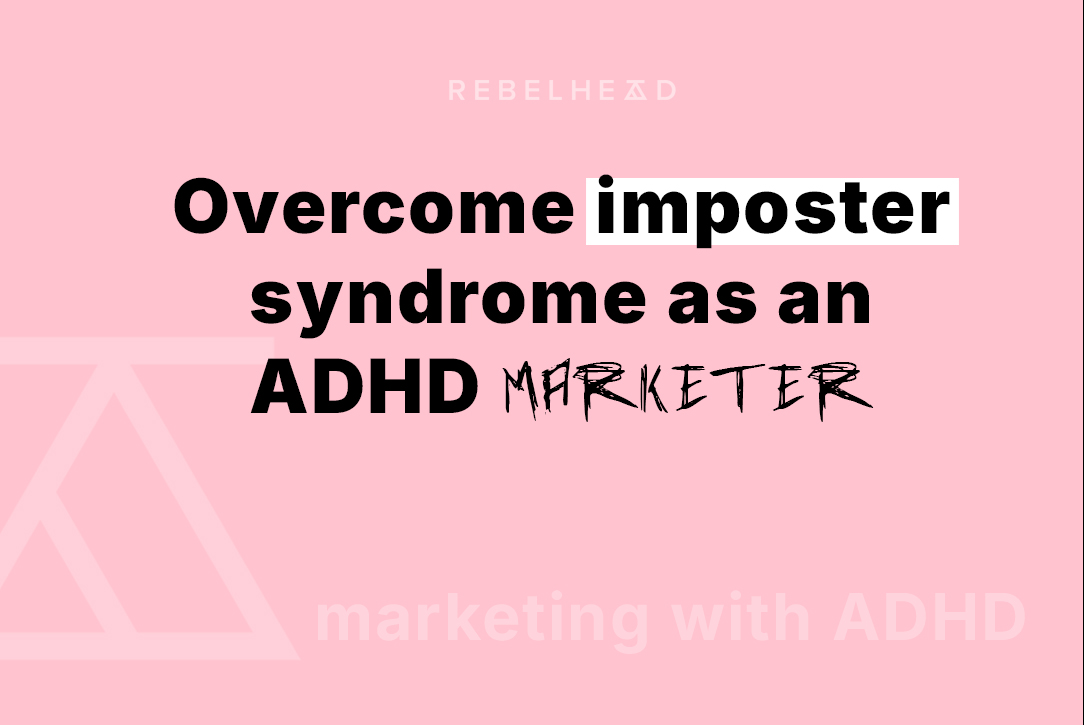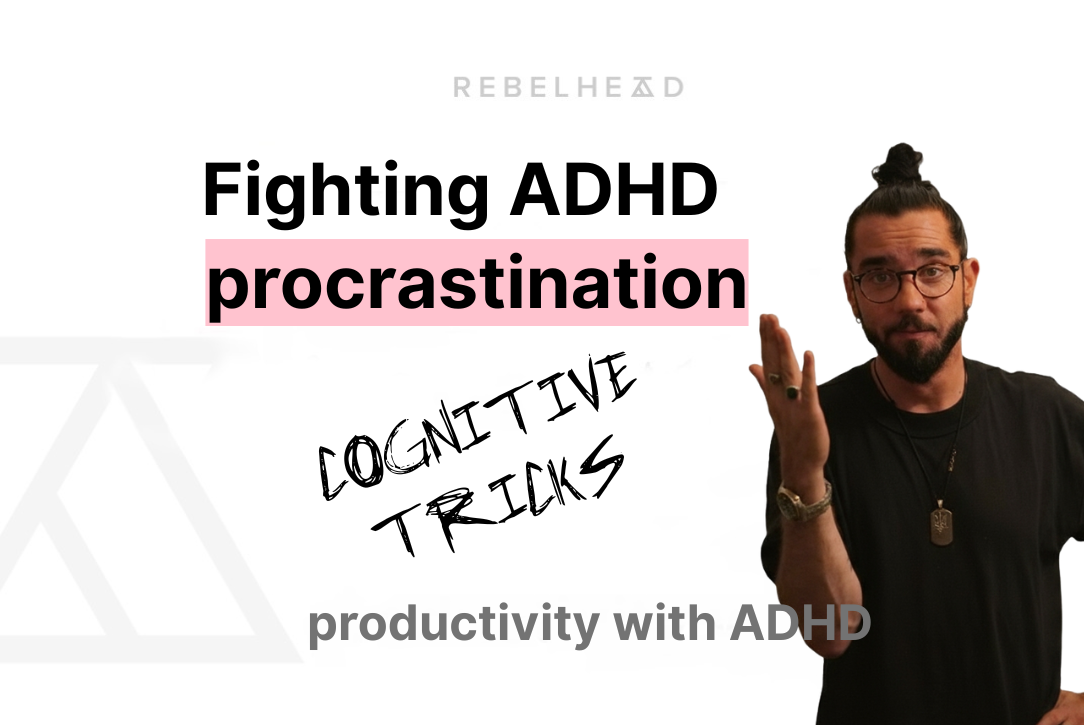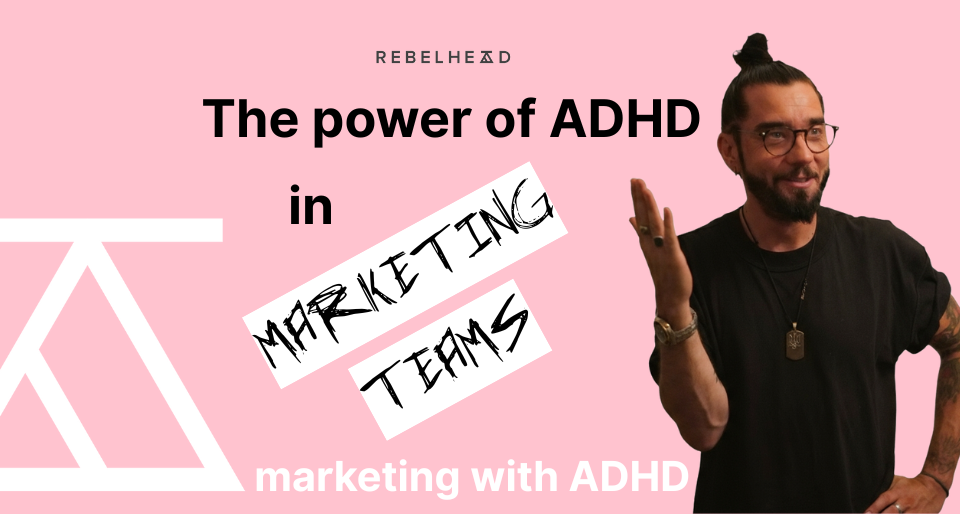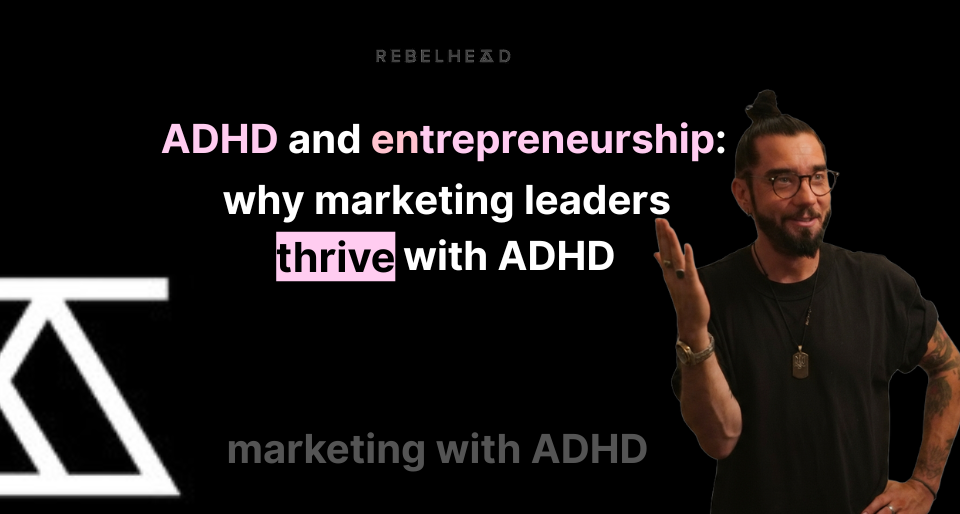Because clearly your 14 successful campaigns were just luck… right?
If you’re a marketer with ADHD, chances are you’ve experienced this charming internal monologue:
“I’m not actually good at this.”
“They’re going to figure me out.”
“I just got lucky.”
“Oh look, a squirrel.”
Congratulations! You may be entitled to a free, lifelong subscription to Imposter Syndrome™, proudly brought to you by perfectionism, comparison culture, and your ADHD brain’s tendency to catastrophize everything from missed emails to minor typos.
Let’s get one thing straight:
You’re not a fraud.
You’re just a talented human with a slightly chaotic operating system and a brain that occasionally convinces you that everyone else has it all figured out (they don’t, by the way).
Let’s unpack how Imposter Syndrome sneaks up on ADHD marketers, and how to politely (or not so politely) tell it to get lost.
- ADHD and Imposter Syndrome: A Match Made in Mental Mayhem
ADHD makes you forget things. Miss deadlines. Struggle to follow through. You know, the kind of quirks that really help when you’re working in a fast-paced, results-driven industry built on performance metrics and the illusion of 24/7 productivity.
You compare yourself to colleagues who colour-code their Asana boards and actually use the “schedule” function in emails, while you’re over here writing Instagram copy in Notes at 2am, thriving in chaos.
So, of course you feel like a fraud. Because you’re not doing it the way “real professionals” do.
Except… you are.
You’re just doing it in a way that’s uniquely, messily, brilliantly you.
- Reminder: You’re Literally Built for Innovation
ADHD isn’t a hindrance—it’s the reason you’re so good at what you do.
That rapid-fire brain? It connects creative dots other people don’t even see.
That impulsive idea you had in the middle of a client call? It turned into a viral campaign.
That “unstructured” thought process? It’s not broken, it’s borderline genius.
Yet somehow, after pulling off something amazing, your first instinct is, “Eh, anyone could’ve done that.”
No, they couldn’t.
They didn’t.
You did.
- The Hyperfocus Trap: Productivity’s Double-Edged Sword
Ever worked on a project for six hours straight, nailed every detail, hit “send” with a flourish, then immediately thought:
“Was that even good? Did I overdo it? Should I have added a third CTA? I should probably scrap it and start over.”
Hyperfocus helps you produce brilliant work, but it also warps your perception. Because if something felt “easy” while you were doing it, your brain assumes it must not be valuable.
Spoiler: Ease is not the enemy. It’s the goal.
- ADHD = Non-Linear Success (and That’s Okay)
You’re not climbing the corporate ladder. You’re zip-lining around it. Backwards. In a costume. With no map. And somehow, you’re still making progress.
The ADHD path is rarely tidy. Your portfolio is a glorious scrapbook of out-of-the-box campaigns, unconventional launches, and bold experiments that worked.
So what if your route looks different from everyone else’s? The view from the top is the same—yours just has more personality.
- How to Shut Down the Imposter Nonsense (Before It Rents a Spare Room in Your Brain)
🧠 Document Your Wins
Keep a “brag folder.” Screenshots, praise, data, results, anything that proves you do know what you’re doing. It’s hard to argue with evidence, even for your inner saboteur.
🔁 Reframe the Self-Doubt Spiral
Instead of, “I don’t know what I’m doing,” try:
“This is new, and I’m figuring it out.”
Instead of, “I’m disorganised and flaky,” try:
“I need systems that support how I work best.”
Language matters. Even in your own head.
📣 Talk About It (Yes, Out Loud)
Spoiler: most of your colleagues also feel like frauds, especially the high-achieving ones. Imposter Syndrome thrives in silence. Drag it into the light and watch it shrink.
Final Thought: You’re Not an Imposter, You’re Unconventional
Imposter Syndrome loves to whisper, “You don’t belong here.”
But let’s be real:
You’re in marketing. You belong exactly here.
This industry runs on originality, bold thinking, and the occasional breakdown followed by brilliance. ADHD marketers thrive in that kind of ecosystem. You’re not the outlier. You’re the blueprint.
So the next time your brain tries to tell you you’re faking it?
Remind it:
You’re not an imposter.
You’re just neurodivergently excellent at making magic out of mayhem.
Links:




